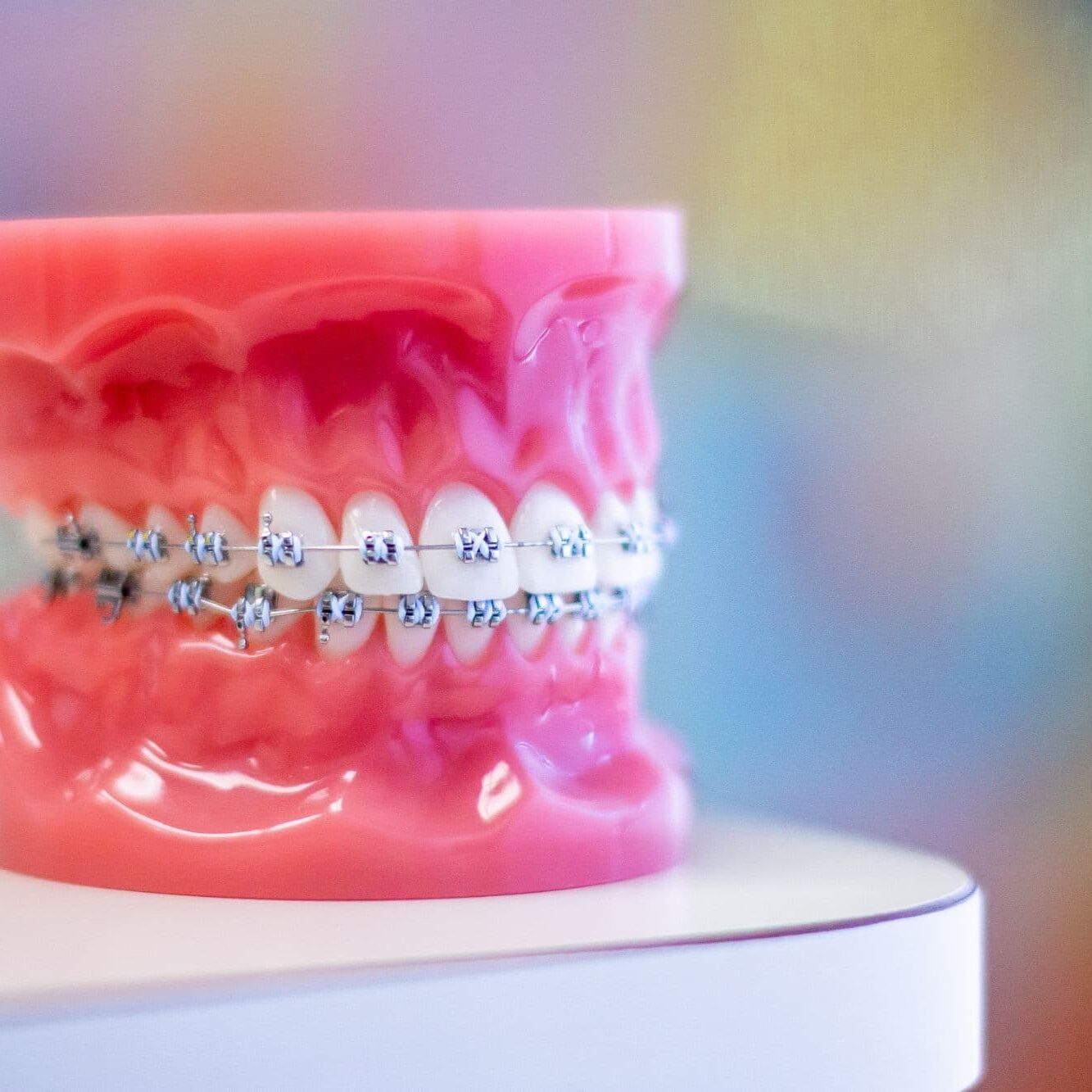Traditional
Sturdy & Reliable
Traditional braces have been around for a long time, and they’re probably the most recognizable symbol of orthodontics.
These orthodontic workhouses have a long history of successful treatment at Scaffidi Orthodontics and they're great at correcting many oral issues.

What Are Braces Made Of?
Brackets
The brackets are durable and made from a mix of stainless steel, nickel, and other metals.
Brackets have little hooks or doors where a wire is threaded. A bracket can be secured by closing the door, or by placing an elastic over the top of the wire.
Glue
This is what Dr. Scaffidi will use to attach the brackets to your teeth. It’s common to attach the bracket directly to the tooth with glue.
Wire
This thin piece of metal runs from one bracket to another. Dr. Scaffidi will change the shape and curvature of the wire to move your teeth in the right direction.
The wire will attach all of your bottom or upper teeth together in many cases. We might occasionally cut the wire if connecting just a few teeth is better for your treatment plan.
Elastics
If you need bite correction, elastics are essential. They’re generally strung between an upper bracket hook and a lower bracket hook. This will pull the upper jaw backward to correct an overbite, or the lower jaw back to correct an underbite.
We may use rubber bands for many different situations, especially when we want to put extra pressure on the teeth or jaws.
Orthodontic Bands
These are stainless steel rings that are cemented to your teeth using dental bonding agents. These bands can provide an anchor for your braces and orthodontic appliances, but they’re not used for everyone.
Spacers
These small elastic “donuts” or rings can be used to create space in between your teeth when needed, typically before bands are placed. They’re also referred to as separators.
Elastic Ties/O-Rings/Ligatures/Colors
These tiny rubber rings or bands are used to attach the archwire to the brackets. They’re less rigid than spacers and come in dozens of colors.
